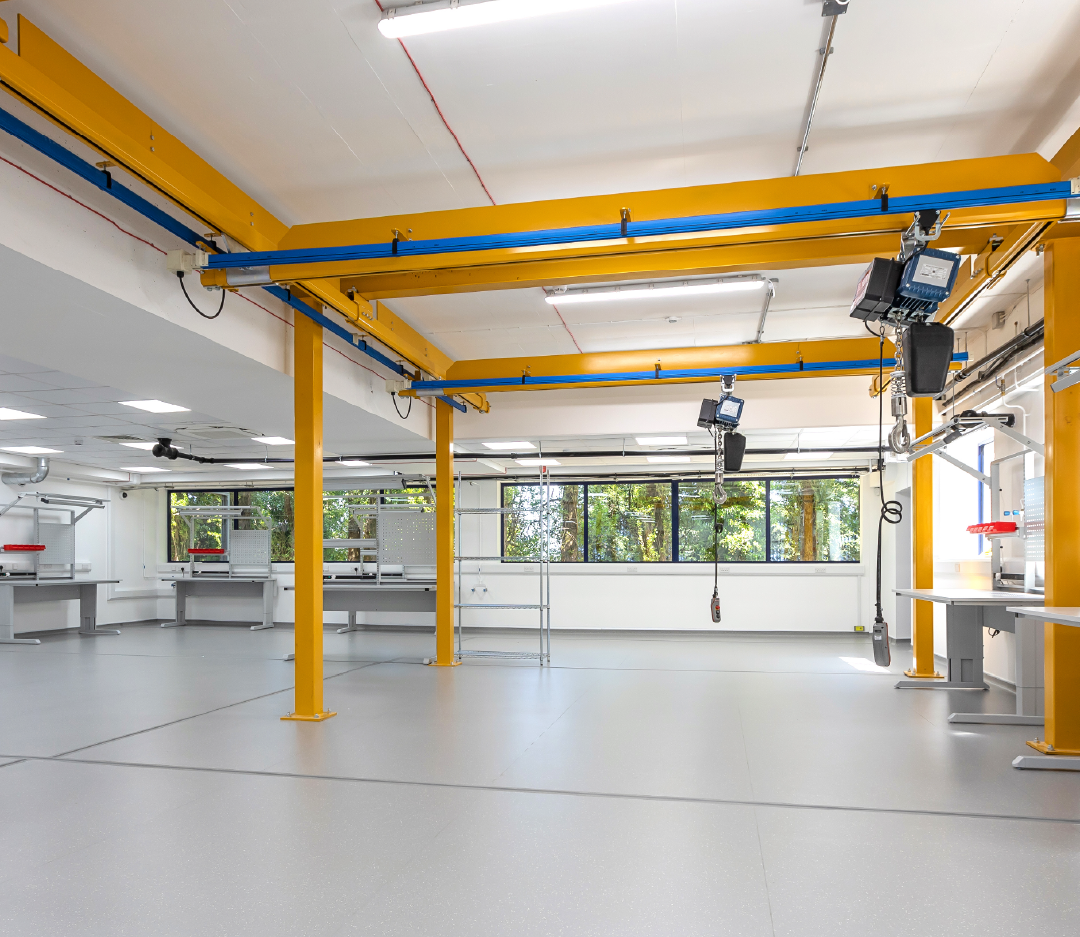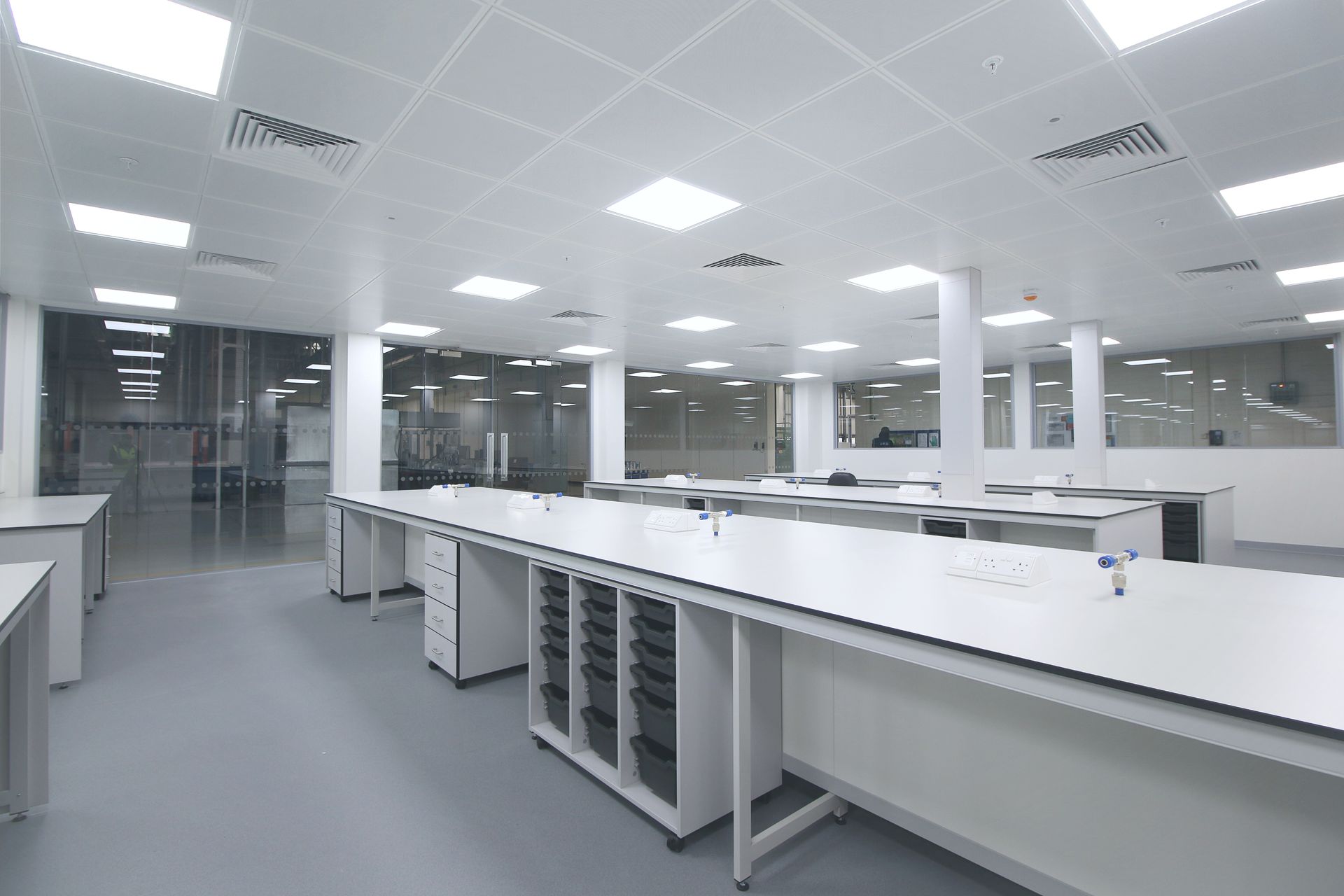Are the days of hot desking over for good?
June 15, 2020
As people gradually return to their places of work with the easing of Covid-19 restrictions, there will be no question of carrying on as before. The government’s guidance “Working Safely During Coronavirus (Covid-19)” sets out a range of measures that should be carried out to ensure the safety of people in what is termed as “offices and contact centres.”
Social distancing remains of vital importance for preventing the spread of infection and in point 3.3 of the guidelines, which relates to workplaces and workstations, it is recommended that “If it is not possible to keep workstations 2m apart then businesses should consider whether that activity needs to continue for the business to operate and if so take all mitigating actions possible to reduce the risk of transmission.”
As commercial interior designers and office fit-out
specialists, Glenside is taking this into serious consideration in the advice we are offering to clients and for projects we will be undertaking in future. We have, for instance, worked with manufacturers on a series of office screening solutions to preserve social distancing in situations where face-to-face contact is necessary.
Another major concern is contamination of surface areas, and the guidance states that “Workstations should be assigned to an individual and not shared. If they need to be shared they should be shared by the smallest possible number of people.” It also specifically mentions avoiding hot desking and carrying out rigorous sanitising procedures where workstations and equipment have been shared.
Benefits of shared spaces
In a recent BBC News online article “Remote working: How cities might change if we worked from home more” Paul Cheshire, Professor of Economic Geography at the London School of Economics, expressed his concern about the negative effects that a lack of normal contact in the working environment could have. He explained that “People are more productive when they are closer together with face-to-face contact. There's 20 years of really good persuasive research demonstrating how important that is. There are lots of things you cannot do except with other people - people are innately social animals.”
He also indicated that the days of hot desking were not over for good. While more people would continue to work remotely “You will probably also get localised desk-sharing, specialised areas where people can go if you're a homeworker, where you can occasionally get better IT or better facilities or get away from your children. There will be an opening-up in smaller towns of hot-desking spaces.”
Maintaining collaboration at a distance
We strongly sympathise with Paul Cheshire’s belief in the importance of a collaborative working environment. It would indeed be a dire legacy of the Covid-19 pandemic if it undermined the practice of close collaboration between people at work.
But this not need be the case. Many businesses throughout the UK have proved to be remarkably adaptable during the pandemic emergency, using communications technology to work remotely and successfully. They are likely to be equally innovative in finding ways to promote collaboration in the office space while safeguarding against risks to health.
Paul Cheshire also mentions the lingering fear that Covid-19 could create: “How long will it take people to recover from the experience of being worried about being in crowds, being vulnerable. I think people will recover from that if there is a vaccine, if the virus subsides.”
There will hopefully come a time when a vaccine against Covid-19 will become readily available, but even then we believe that the workplace will remain influenced by the current pandemic. As commercial interior designers we naturally abhor cramped working conditions, and we see it as our business to create office spaces that enhance performance and inspire motivation.
Safety and flexibility
Occupational health and the hygiene procedures in place to protect it are likely to become of greater importance now than before the outbreak of Covid-19. Hand sanitising products and other extra hygiene measures are likely to become familiar in the workplace in times to come, as are ways to maintain adequate distancing even when the two metre rule is relaxed.
Working from home is one of the frequently cited elements of agile working, so this is a trend that should continue to gather pace. However, for most businesses it is likely to be an element of their flexible work practices rather than a replacement for working in the office.
With these aspects in mind, we believe that hot desking is unlikely to be a growing feature of office life in the foreseeable future. However, there will be other ways that office design can recreate its positive aspects. Workplace collaboration and flexibility will continue to develop, but will be undertaken in ways that do not introduce potential risks to health.
If you are considering changes to working practices in light of the risks of Covid-19 infection, or if you need to reconfigure the layout of your offices and introduce new social distancing measures, please get in touch with us. We would be glad to offer our help and advice.
View more insights: Office Design I Industrial Property I Laboratories I Wellbeing & Productivity I Company Updates
Join Our Mailing List
All data is handled inline with our Privacy Policy and you may unsubscribe at any time.





